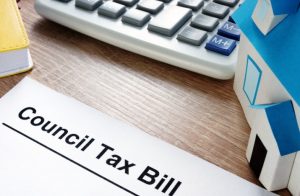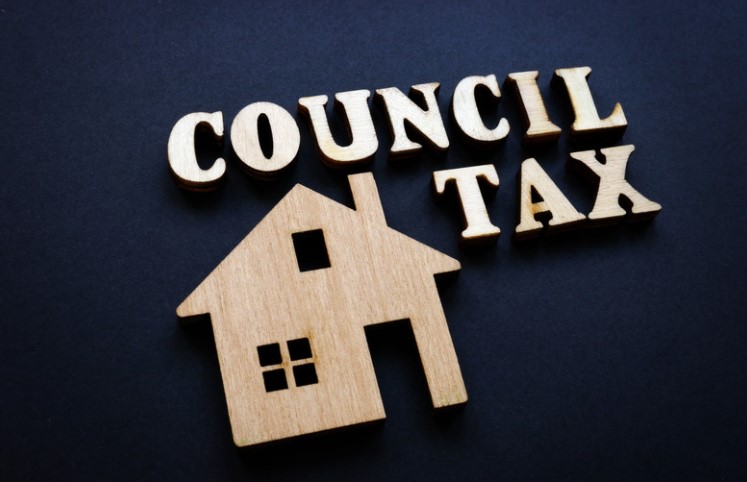If you’ve just relocated to the United Kingdom (or are considering doing so), you may be asking about council tax. How much does it cost? What exactly does it pay for? How can you receive a discount? What happens if you don’t pay your payment on time? If you are searching “How much is my council tax” we’ve put up a quick guide on council tax in the United Kingdom to assist you.
How Much is My Council Tax?
The amount of council tax you will pay depends on several factors, including the valuation band of your property and the local tax rates set by your local authority. Each property is assigned to one of eight valuation bands, ranging from Band A (the lowest) to Band H (the highest). The exact amount you will pay within your band is determined by your local authority’s tax rate. To find out how much council tax you will need to pay, you can visit your local authority’s website or contact their council tax department directly. They will be able to provide you with an accurate assessment based on your specific circumstances.
What Exactly is Council Tax?

Council tax is a yearly fee levied by your local government. Every April, you’ll get an annual bill with the option of paying in whole or in installments. If you choose the latter, you’ll usually pay council tax in 10 installments across the year. You don’t have to pay for two months out of the year.
Each property in England and Scotland has a council tax band, ranging from A (the lowest) to H (the highest). On the other hand, Wales has nine rounds, ranging from 1 (the highest) to 9. The band your property belongs to is determined by several factors, including where you live and the size of your property.
You must pay council tax if you live in the United Kingdom. Whether you are the owner and occupant of the property or a renter in privately leased or council housing, it is true. Some properties and individuals are exempt from paying council tax. Furthermore, depending on who else resides on the property, certain persons are entitled to a 25% or 50% discount. If you live alone, you will not be required to pay the whole sum. Later in the article, we’ll go over this in further detail.
What is the Purpose of the Council Tax?

The council tax accounts for 25% of all government expenditures. The remainder of the funds is derived through business rates. It is up to your local council to allocate the funds as they see appropriate. The majority of the council tax revenue goes to regional and community services. It includes police, fire services, street cleaning, street lighting, park upkeep, assistance for the aged and vulnerable, and local recreation facilities. The council tax covers rubbish removal collection and disposal, municipal administration and record-keeping, libraries, and educational services.
How is the Amount of my Council Tax Calculated?

The local government assesses how much money it needs to earn each year and determines how to do it via council tax (amongst other things). They base the tax rate on the bill for a ‘nominal Band D’ property occupied by two non-exempt adults.
It is then used as a starting point to calculate how much the bill will be for subsequent bands, rising or reducing by the band ratio. For example, Band D is 100 percent, and Band H is 200 percent, which implies that property in Band H, with a value of more than £320,000 in 1991, must pay twice as much council tax as a comparable Band D property.
If your property is revalued, it may be assigned to a new council tax band, for example, if you build an addition or convert a single home into many self-contained serviced apartments. It may also happen if your neighborhood undergoes significant changes, such as constructing a new road.
Whether you wish to discover if alterations to your home may impact your Council Tax band, you can contact the Valuation Office Agency (VOA).
What is the Amount of Council Tax?
Your home’s value and location affect the amount of council tax you owe. After clicking on the correct link above, you’ll be able to learn more about your local council tax. You might also inquire with your local municipality.
What Exactly are Council Tax Bands?

In England, council tax bands are based on the property’s market worth, precisely what it would have sold for at 1991 pricing (even if it’s new construction). There are eight council tax bands in London ranging from Band A to Band H. Band A has the lowest property worth, while Band H has the greatest.
In England, the average expense of Council Tax in 2018-2019 was ₤ 1,114 for a residence in Band An and ₤ 3,342 for a property in Band H yet. It may vary substantially because each neighborhood authority identifies the cost of the levy for a Band D residential or commercial property (and after that, all the various other bands are calculated off that).
How Can You Apply for a Decrease in Your Council Tax?

Don’t be concerned if the notion of council tax expenditures on top of all other obligations makes you nervous.
It is true if you are:
- On a tight budget
- A student or someone who lives among students
- The property’s lone adult resident
- A person with a disability
- mentally ill, or living with someone who is
- A care leaver in Scotland, as well as some counties in England and Wales
- residing in a nursing home or hospital
- While incarcerated
- A service member in the armed forces (circumstances depending)
What Are the Benefits of Paying Council Tax in the UK?
Paying council tax in the UK comes with a range of benefits for residents. The revenue generated from council tax is used to fund essential public services such as rubbish collection, street cleaning, and local infrastructure maintenance. By paying council tax, residents contribute to the upkeep and improvement of their local area, making it a more pleasant and livable place. Additionally, council tax helps to fund important community services such as schools, libraries, and recreational facilities. These services enhance the quality of life for residents and contribute to the overall well-being of the community. Paying council tax is not only a legal obligation but also a way for individuals to actively participate in shaping and improving their local area.
How do You Sign up for Council Tax?
If you live in a home where council tax is not already included in your rent (such as a serviced apartment), you must contact your local government. Go to the gov.UK website to identify your local council’s contact information and register with them.
Once you’ve registered, you’ll get your council tax bill in the mail and will be able to select whether to pay it all at once or in ten monthly installments.
Conclusion
The yearly sum you pay to your local council is council tax. Your council or board determines the cost, which goes toward supporting local services. Learn more about Council Tax, how to avoid paying more than you have to, and what to do if you cannot pay. So, if you’ve ever wondered, “how much is London council tax?” As you can see, there is no one solution – but ideally, you now understand where your money goes, how to figure out how much it is, and why it costs what it does.









